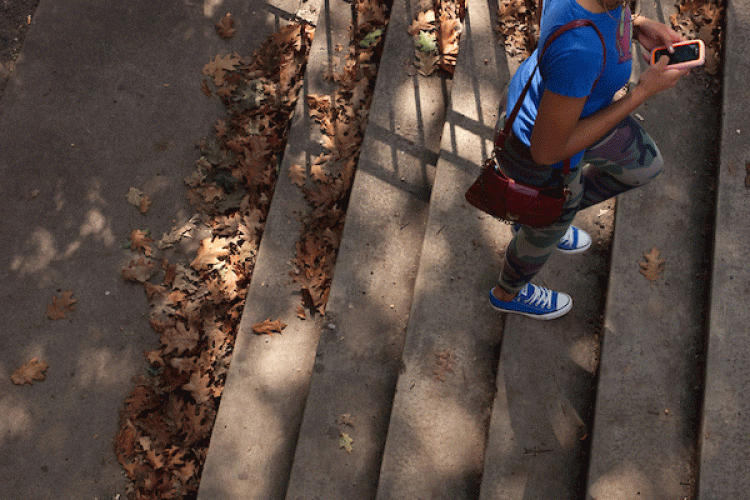
University Accessibility offers centralized, expanded support for accessibility

In summer 2018, the Office of the Executive Vice President and Provost announced the consolidation of services and support to persons with disabilities who are part of the University community, visitors and guests as part of Ohio University’s commitment to providing an inclusive learning environment and workplace.
The Office for University Accessibility (OUA), reporting to Dr. Elizabeth Sayrs as the vice provost for undergraduate education and dean of University College, is charged with providing reasonable accommodations for the public, employees and students as well as leadership and guidance to the University related to accessibility and inclusion.
Under the leadership of Dr. Carey Busch, OUA works to achieve access and inclusion through multiple approaches, including disability and accessibility planning and partnerships. OUA coordinates the provision of accommodations and services for people with disabilities who are students, employees, and members of the public. They also support departments and employees in implementing accessible and inclusive practices.
A key part of the Office of University Accessibility, Student Accessibility Services (SAS), a specialized team led by Christy Jenkins, coordinates student accommodations and connects students with disabilities to the most relevant campus resources.
“Ohio University embraces access and inclusion as the responsibility of our entire community, however the Office for University Accessibility is the primary point of leadership and accountability,” said Busch. “We have spent the last year refining our mission and how we can best support the institution with our new structure.”
In the past year, OUA has focused on expanding support to the University community through the following efforts:
- More general guidance around how to respond to or plan for common encounters involving disabilities and accessibility. Find action guides on the OUA website.
- Consultations to assist departments in clarifying and making progress toward their accessibility goals.
- Plans to launch a training series to address common accessibility issues. Departments may request training and outreach on a variety of topics regarding disability, accessibility, and inclusion by completing this online outreach request.
- Publishing the “Accessible OHIO: It’s What We Do” series in Compass (now OHIO News) to help the community identify and resolve accessibility barriers.
OUA recently piloted departmental consultations with Campus Recreation and the Office for Multicultural Student Access and Retention (OMSAR). As part of this process OUA staff Dr. Dianne Bouvier and Dr. Carey Busch assist departments in reflection on self-assessment and goals, review progress, establish specific and achievable goals, provide technical assistance to support departments in reaching their goals, and develop departmental knowledge and confidence to continue progress after consultation completion.
OMSAR Director Dr. Marlene De La Cruz-Guzmán saw participating in the pilot round of OUA department consultations as an opportunity to take a critical look at the accessibility of OMSAR’s programming, documents, and student communications and to make needed changes to better support underserved scholars.
“We learned a lot more about our students’ different ways of accessing information and how to make our communications more accessible,” said De La Cruz-Guzmán. She noted that although her office already included accessibility language in their syllabi, it was dependent on the instructor’s choice of language. “After this review, we, as a staff, were able to craft a standard insert for the syllabi of courses taught through OMSAR,” she explained. Now OMSAR will include the standard accessibility language in their study abroad courses even if they are taught or co-taught by faculty from other departments. “The new best practice helps us to champion accessibility both internally and with campus and external partners,” said De La Cruz-Guzmán.
Campus Recreation staff had been looking closely at how their customers interact with their programs and facilities and how to make them more accessible over the past few years, according to Executive Director Mark Ferguson. “We had the information. What was beneficial was having that direct support to talk though our self-assessment and identify concrete steps we could take,” said Ferguson.
Ferguson noted several areas his staff has worked on in the lead-up to this academic year. Campus Recreation has been more intentional about bringing the topic of accessibility into staff professional development. They have also examined their membership services and reservation/rental processes, as well as how they communicate about the accessibility of their spaces.
“I think some of the changes we’ve made will have lasting impacts that our customers may not even notice because they won’t be faced with situations that we’ve tried to eliminate,” Ferguson said. He encourages other departments to engage in the accessibility consultation process, noting appreciation for the expertise and support that Bouvier and Busch provided. “We plan to make this an ongoing conversation to help understand some of the barriers that inhibit participation in our programs,” Ferguson added.
More information about departmental consultations, training, and guidance is available on the OUA website.
